
Ed O’Malley is the Founder of the Kansas Leadership Center, President and CEO of the Kansas Health Foundation, and the author of four books, including his latest, “When Everyone Leads.” Ed discusses how leadership differs from authority, and that authority is required to lead. He explores the disruptive aspects and the risks of leadership. Ed explains the type of problems authority solves and the challenges that require unleashing the leadership of the whole team to move forward. Listen in for how to move forward when faced with daunting challenges.
Key Takeaways
[3:25] In Ed’s book, When Everyone Leads, the key is getting people to separate leadership from authority. In some situations, the reliance on authority gets in the way of progress. We need people to know that even if you’re not the captain of the team or boss, the toughest challenges require your leadership, also. The book is about how you unleash that in everybody.
[4:45] Ed talks about over-reliance on authority. Authority is necessary, but it’s not sufficient for making progress on our biggest problems. Challenges between people need to be resolved by the people involved.
[6:14] On our toughest challenges, none of us know exactly the way forward. Trust that the collective is stronger than one person’s idea. If we unleash the leadership of others, so they feel empowered to exercise that leadership, then we start making more progress.
[6:49] If we assume that we have the answers and we know the best way forward, that conveys a lack of trust in the collective. The toughest challenges get solved by people working together.
[8:46] The book is about the toughest challenges. A prerequisite for unleashing leadership in more people is to help people break apart the idea of leadership from the idea of authority. They are different things and people know this intuitively. Ed uses the example of Rosa Parks showing leadership by choosing her seat on the bus.
[10:20] Ed wants people to be conscious of the differences between authority, leadership, people holding positions of authority, and people exercising leadership. Sometimes people in authority exercise leadership. Sometimes People not in authority exercise leadership. Sometimes nobody does. If people see it separately, it opens up a conversation about what the exercise of leadership looks like for them.
[11:22] Jim cites Jim Detert, author of Choosing Courage, regarding the courage it takes to step up and face big problems.
[12:08] Julia McBride, Ed’s co-author on the book, would say it’s all about clarity of purpose. Those who exercise effective leadership are clear in their deep purpose, and clear on the purpose for the meeting they’re walking into and the role they play in that meeting. They’re clear on the purpose of the project they’re a part of.
[12:46] A lot of people’s purpose is to keep their boss happy. Our toughest challenges are usually about something a lot bigger than that. Leadership is motivating others to make progress on daunting challenges and it hardly ever happens.
[14:24] Ed cites the work of authors Ron Heifetz and Marty Linsky who pioneered the concept of the Zone of Productivity, where there is enough conflict that people are uncomfortable enough to change the status quo, but there is not enough conflict to shut people down. If you don’t have enough conflict, nothing is changing. If you have a lot of heat at work, consider if progress is being made in the work.
[15:32] If the conflict or heat from the top is not leading to progress, then it’s time to ask questions and intervene in the lack of progress.
[16:52] An executive team needs a common language to talk about the dynamics of productivity.
[17:30] Leadership is always about disrupting things. Ed quotes Marty Linsky, “Leadership is disappointing your own people at a rate they can absorb.” When you’re intervening up, you can’t anger the boss too much; you might be out! But If you’re just keeping the boss 100% happy, you might not be doing anything that looks like leadership.
[18:02] Jan recalls Jeffrey Pfeffer’s 7 Rules of Power. It’s evidence-based, controversial, and makes people very uncomfortable. Two of the rules are “Break the rules,” and “Show up in a powerful way.” These are hard to do. You’ve got to know how far you can push a boss before you’re damaging yourself.
[18:36] Ed goes back to being clear about purpose. If your purpose is to get along, be secure, and not rock the boat, you will not get close to exercising leadership. If your purpose is “I want the best value for my clients,” or “I’m a sales leader and I’m taking the organization from this level to that level higher,” then you’ll be willing to disrupt the norms. Leadership is always disruptive and risky.
[19:18] Ed says all of our research is showing if you get lots more people exercising leadership and intervening to create more progress it makes it more likely you’ll get the progress. It’s too tough for one or two people to do alone because it’s too disruptive.
[20:01] A chapter in the book explores the clash of values. Our toughest challenges are often about value clashes. You may have a value of gaining market share and a clashing value of playing it safe and not developing new products because you have a legacy product that has been winning for so long. Leadership is always about helping a system elevate one value over another. There is loss in that.
[21:31] Anyone can ask powerful questions. Ed explains that a powerful question comes from deep curiosity and it’s open-ended. A question that has an exact technical answer is not a powerful question, it’s a fact-based question. Powerful questions help everyone learn. “What’s our greatest aspiration for our organization?”, “What concerns us the most?”, “What makes progress so hard on those things?”
[22:56] Big open-ended questions are powerful and are often game-changing. Powerful questions often make us uncomfortable. They should force us to slow down a little bit and reflect differently.
[24:33] Ed interviewed a sage one time who told him, “Ed, that’s a great question! And it’s a great question because it doesn’t have any answers!” If there’s an easy answer, it might not be a good question.
[25:01] If what you’re working on isn’t a daunting challenge; if it’s run-of-the-mill stuff; if you’ve got a deadline and the work is technical, and you’ve got to meet it, you’re going to drive everybody crazy if you’re walking around asking big, open-ended questions all the time! It’s when you’re trying to focus people on the things that matter most that these powerful questions are so needed.
[26:10] Less senior people may be granted some grace in asking open-ended questions to reveal less knowledge of the organization’s purpose. More senior people may ask powerful questions that tend to shape expectations: “How will we respond to some inevitable failure in our attempts to do X?” This introduces the concept of being adaptive.
[28:49] The book discusses technical problems vs. daunting adaptive challenges. If you have the authority, say, “We’re solving this technical problem this way.” But it is a mistake to treat a daunting adaptive challenge as if it were technical. Those types of challenges where the problem is poorly defined and the answer is unknown cannot be solved by your authority alone. You won’t get progress.
[30:34] Jan tells about Bill Dean. They would be at a problem situation and Bill would say, “OK.” It meant he acknowledged, he understood, and they would step back and pause before trying to find out what the issue was. He said OK, and everybody knew it was going to be OK. Jan learned to step back when people are hitting the Panic button. Ed says, on the toughest challenges, help people to go slow.
[33:32] Have the awareness to discern when you’re facing something adaptive where you don’t know the way forward. In that situation, progress is about creating a system that can be iterative, that can be experimental, that can take smart risks, learn from them, and take bigger risks. If the situation doesn’t call for that and we bring it, we’re just going to create more problems.
[34:10] There are a lot of big ideas in the book. One is knowing the difference between the technical problems and the adaptive challenges. They require you to lead differently. Another idea is that your authority is a resource but it is not enough to solve adaptive challenges, so you unleash leadership for others in an iterative, learning environment where risk-taking is expected.
[36:25] There are expectations on those in authority. Ed repeats that leadership is disappointing your people at a rate they can absorb. People have expectations of those in authority and history is full of examples of what happens to people in authority if they disrupt those expectations too much. Live within the expectations, but push against them, as well.
[37:04] Ed explores how those in authority successfully used leadership during the pandemic to be firm and specific about the process they would use to solve the issue without going into what the outcome of the issue would be. They used authority to help people feel safe and that there is some order to things. They talked about the timeline for bringing the best people together to solve the problem.
[38:16] Jim compares how Jessica Chen from the previous podcast episode described the same situation of describing the process you are going through to arrive at an answer when dealing with ambiguity. Jim recommends listening to that episode, as this is a big and important concept. Ed agrees, it is important, but it is hard to practice. Go back to knowing whether it is an adaptive challenge or a technical problem.
[39:31] If it’s a technical problem and you are in authority, use your authority to solve the problem. For listeners who aren’t in authority, Ed reminds you to break apart authority and leadership. If you connect them, it lets everybody off the hook, and it’s the CEO’s job. That puts too much pressure on those in authority. They can’t deliver. The truth is, in the big tough challenges, we’ve all got a part in the mess.
[40:25] Jack Welch said, “You can’t scale complexity.” Ed’s book leads toward simplifying our approach. Jan recommends listeners read Ed’s book. It’s easy to read and laid out in a way that’s very pragmatic.
[42:06] Ed’s challenge to listeners: “I think we’ve got to get the bat off our shoulder and take some swings. … Learn how do you take those swings with confidence and skill so you can get a few more hits than you would otherwise.”
[44:12] Closing quote: Remember, “Unity is strength… When there is teamwork and collaboration, wonderful things can be achieved.” — Mattie Stepanek
The Leadership Podcast is sponsored by W.S. Darley & Company.
Founded in 1908, Darley remains a family owned and operated business, providing the highest quality equipment solutions to our country’s warfighters and firefighters.
Learn more at darley.com and darleydefense.com
Quotable Quotes
“We need people to know that even if you’re not the captain of the team, the boss, the CEO of the company, or the mayor of the town, the toughest challenges require your leadership, also.” Share on X “I think we have an over-reliance on authority. Authority is useful; it’s necessary, but it’s insufficient for making progress on our biggest challenges.” Share on X "A prerequisite for unleashing leadership in more people is to help people break apart the idea of leadership from the idea of authority. We’ve got to get people to see them as two different things. They are totally separate. And I… Share on X “Authority is a role; it’s a position, and leadership is an activity. And sometimes those in authority exercise it. But most of the time they don’t. And sometimes people not in authority exercise leadership. But a lot of times, they… Share on X “The book is counter-cultural, in that regard. We’re trying to create a new norm for what leadership even is.” Share on X “Leadership is always about disrupting things.” Share on X “Leadership is so rare because it’s risky; … it’s disruptive, which is why all of our research is showing if you get lots more people exercising leadership; intervening to create more progress, it’s … more likely you’ll get the… Share on X “Big open-ended questions are powerful and they’re often game-changing.” Share on X “If what you’re working on isn’t a daunting challenge; if it’s run-of-the-mill stuff; if you’ve got a deadline and the work is technical, and you’ve got to meet it, you’re going to drive everybody crazy if you’re walking around… Share on X “It’s when you’re trying to focus people on the things that matter most that these curiosity-based, open-ended, powerful questions are so needed.” Share on X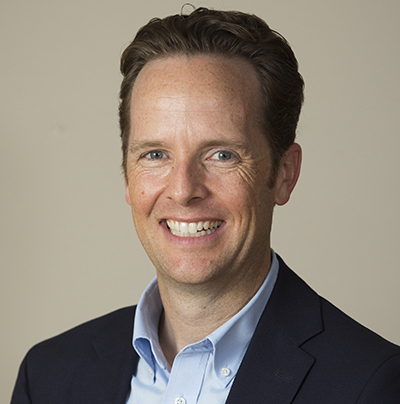
These are the books mentioned in our discussion with Ed.

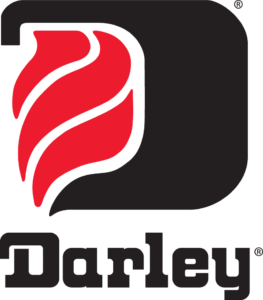

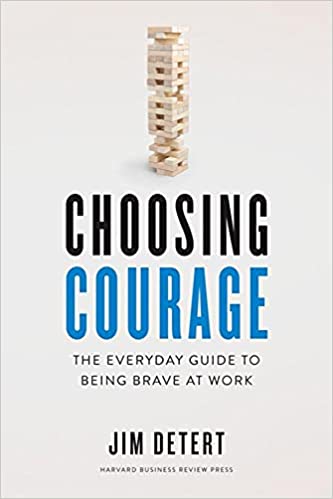

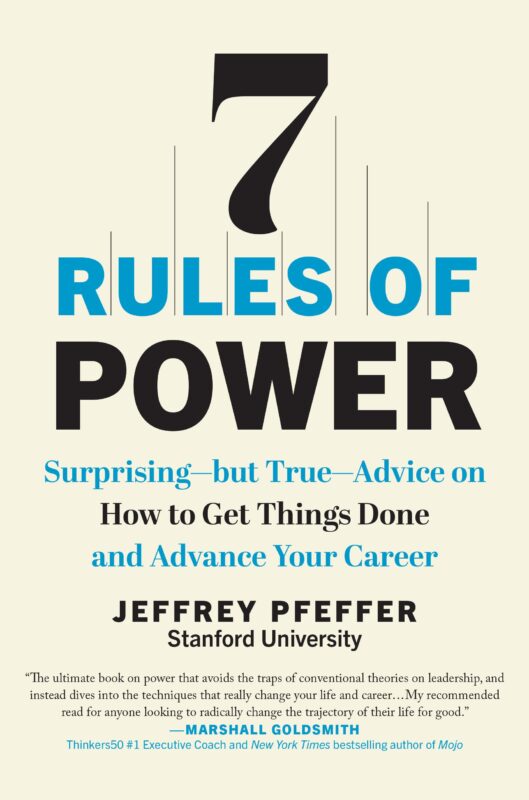
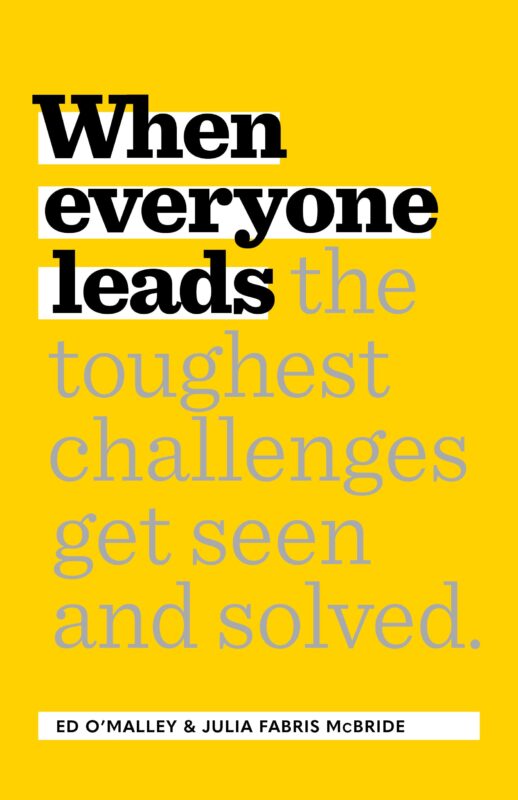
Recent Comments